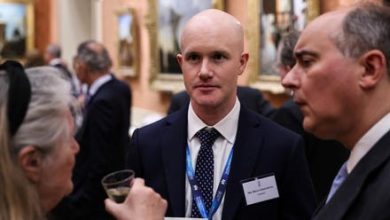Bolt’s Former Billionaire Founder Is In Legal Trouble — Again

Ryan Breslow became one of the world’s youngest billionaires after founding payments unicorn Bolt.
Aaron Kotowski/The Forbes Collection
Bolt founder Ryan Breslow may have agreed to settle a lawsuit over the unusual $30 million loan he secured through his fintech company, but the legal battle is far from over.
Last week, a trio of some of Bolt’s largest backers — BlackRock, Hedosophia and Untitled Ventures — filed an objection to the settlement that Breslow had reached with aggrieved Bolt investor Activant Capital. Now, a Delaware Chancery judge has granted it, halting the proposal to cancel a chunk of Breslow’s shares as repayment for the loan, while blocking Activant from selling back its stake in the company.
To recap: In 2021, after Bolt’s valuation soared to $11 billion, Breslow was granted a $30 million personal loan secured against the company’s assets. After spending lavishly on homes, trips and startup investments, Forbes reported, Breslow defaulted on the loan and the money was swept from Bolt’s account (Breslow broadly disputed Forbes’ reporting). When several of the company’s board members then pressed him to repay his debt, Breslow had them summarily removed, replacing them with a parade of his friends and confidantes. Last July, Activant sued the young founder, claiming he had unjustly enriched himself on the company’s dime. Breslow, in return, called the lawsuit “nothing more than sour grapes,” but eventually agreed to a settlement that would zero out his debt while preserving his control of the board.
The objection filed by BlackRock, Hedosophia and Untitled Ventures last Friday is a confidential record. But some investors believe that Breslow has been using Bolt’s cash to buy out shareholders who have opposed him personally, sources familiar with the matter told Forbes. As part of the settlement, Activant would recoup roughly $36 million by selling its shares back to Bolt, and the company would also pay the investor $5 million in legal fees. A group of shareholders, including the trio of objectors, now hopes to lay open the deal they believe would exclusively benefit Breslow and Activant, these sources claimed. In the settlement itself, lawyers for Activant said it “is in all respects fair, reasonable, and in the best interests of Bolt and its stockholders.” Bolt did not respond to a request for comment.
Got a tip for us? Contact reporters Sarah Emerson at semerson@forbes.com or 510-473-8820 on Signal, and Iain Martin at iain.martin@forbes.com.
Throughout this process, Breslow has maintained his innocence, claiming to have been within his rights to make changes to the board, and to explore various avenues for remuneration. Breslow did not respond to a request for comment.
The Activant settlement would have canceled more than 13 million of Breslow’s common shares, amounting to roughly $37 million, in order to cover his loan as well as security and travel expenses he had attempted to bill to the company. (In May, when the settlement stipulations were filed in court, Breslow’s shares had not yet been canceled.) As Forbes previously reported, those shares were retitled to Bolt in January during a tender offer that was also open to investors and employees. However, Breslow’s shares were valued at a higher price than everyone else’s. Forbes also learned that shareholders who agreed to the sale were required to release Bolt and its affiliates, such as Breslow, from further legal action. For this reason, Activant said it would not partake in the offer.
The settlement objection requires Bolt to give a month’s notice before “consummating any repurchase” of Activant’s shares, according to the filing. BlackRock, Hedosophia, Untitled Ventures and Activant declined to comment.
Tribe Capital also took part in the earlier tender offer, The Information first reported. These buybacks have drained Bolt’s remaining cash, with the company now holding approximately $150 million, down from $200 million prior to the tender offer, said sources close to the company.
Last December, Bolt conducted its second round of layoffs that year, cutting 29% of staff, or an estimated 100 employees. Then, in March, CEO Maju Kuruvilla abruptly stepped down after being removed by the board, The Information reported, and was replaced by Justin Grooms, Bolt’s former head of global sales. Kuruvilla’s LinkedIn profile now states that he is the founder of a stealth AI startup.
BlackRock and Hedosophia invested in Bolt’s Series E round in February 2022, when the startup raised $355 million at a $11 billion valuation. Breslow, who’s own stake in Bolt was valued at $2 billion during the round, resigned as chief executive weeks later after launching into a Twitter rant about Stripe, Y Combinator, Sequoia Capital. After launching a probe into allegations that Breslow had misled investors during fundraising, the Securities and Exchange Commission confirmed in September 2023 that it did not plan to take action against the company. Breslow has previously declined to comment on details of the investigation and Activant lawsuit.



